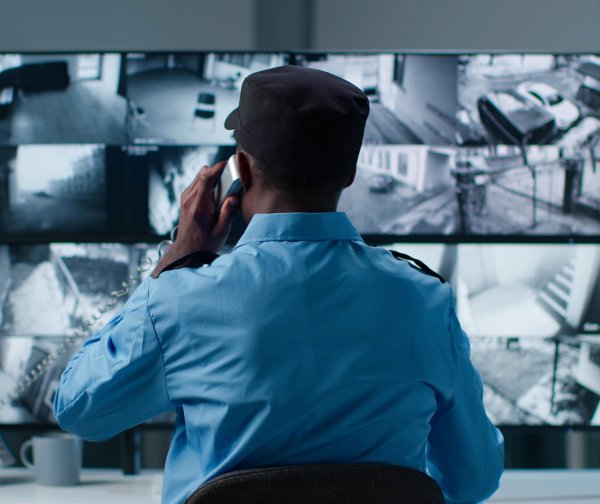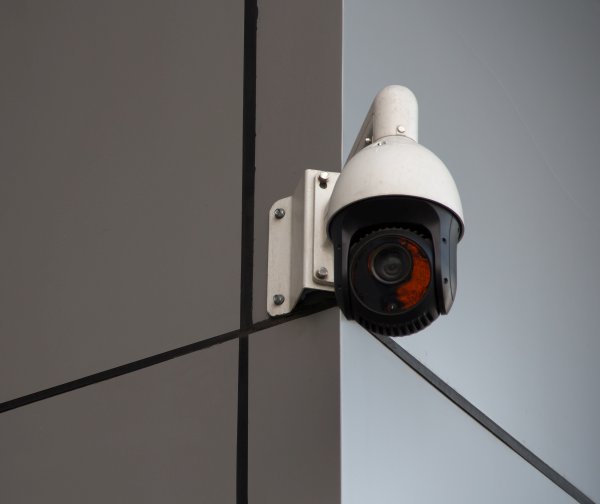Blog

DECEMBER 31, 2024
In today's high-stakes business environment, corporate security has become mission-critical as organizations face average data breach costs of $4.88 million in 2024. Far beyond traditional guards and cameras, it's a comprehensive shield protecting both digital and physical assets—from sensitive data and intellectual property to employee safety and company reputation.
With one-third of breaches involving shadow data and 40% affecting information across multiple environments, modern corporate security functions like an organization's immune system. It defends against evolving threats that can cost companies up to $5.17 million for cloud breaches alone. This makes it a fundamental pillar of business strategy and growth.
Corporate security is the discipline dedicated to protecting corporate assets, establishing business continuity, and mitigating potential risks. Corporate security services encompass various strategies aimed at safeguarding a company's operations and reputation. The goal is to create a resilient security posture that can withstand potential security threats.

In the modern business landscape, companies face a multitude of potential security threats that can jeopardize their operations and financial stability. Recognizing and addressing these threats is essential for maintaining a secure environment and making sure of business continuity. Here are some of the most common corporate security threats:
Internal threats, such as theft and fraud, often originate from within the organization. Employees with malicious intent or those who accidentally compromise security protocols can pose significant risks to company assets. Human error is another prevalent internal threat, as unintentional mistakes or negligence can lead to data breaches or unauthorized access to sensitive information.
Vandalism can result in physical damage to a company's property and disrupt daily operations. Implementing access controls and surveillance systems can help deter and mitigate the impact of vandalism. Cyber threats, including hacking and malware, are escalating in both frequency and sophistication. These attacks can lead to the unauthorized access of digital assets and intellectual property, risking significant financial losses and reputational damage.
Natural disasters, such as floods, earthquakes, and hurricanes, can lead to catastrophic property damage and operational disruptions. Businesses need to incorporate disaster preparedness and response plans into their corporate security strategies to mitigate these risks. Having a robust emergency response plan is essential for safeguarding employees' safety and establishing a swift recovery from natural disasters, minimizing downtime and financial impact.

Physical security measures involve protecting physical assets through access controls, surveillance systems like surveillance cameras, and other crowd control methods. Security officers play a key role in monitoring security incidents and implementing security protocols to deter physical crimes and property crimes.
In the digital age, protecting digital assets is paramount. This involves implementing cybersecurity measures, safeguarding intellectual property, and enforcing security policies to prevent cyber risks and security breaches.
Corporate security officers make sure that company personnel adhere to security requirements. Proper background checks, security guard presence, and a culture of security awareness are vital to minimizing the weakest link in security: human error.

Identification of Suspicious Activities. Corporate security investigative services are adept at identifying unusual or suspicious activities within the organization, which can help prevent potential security breaches or internal malfeasance.
Conducting Risk Assessments. These services perform comprehensive risk assessments to pinpoint vulnerabilities within the company's security framework, aiding in the development of targeted risk mitigation strategies.
Incident Response. In the event of a security incident, investigative services provide rapid response capabilities to understand the cause and impact, allowing for swift corrective actions and minimizing damage.
Preventative Measures. By analyzing trends and patterns in security incidents, corporate security investigative services help in implementing preventative measures to avert future threats and enhance total security posture.
Collaboration with Law Enforcement. They often serve as liaisons between the company and law enforcement agencies, assisting in smooth communication and cooperation during investigations involving legal implications.
Employee Investigations. Conducting background checks and investigations into employee-related incidents confirms that personnel adhere to company policies and maintain integrity in their roles.
Data Analysis and Reporting. With expertise in data analysis, investigative services provide detailed reports on security incidents, which are vital for informing management decisions and policy adjustments.
Supporting Legal Actions. When legal actions are necessary, these services gather and preserve evidence, supporting the company’s legal team in litigations or regulatory compliance matters.

In the modern corporate environment, technology plays an important role in enhancing security measures. By integrating cutting-edge technological solutions, businesses can proactively protect their assets, streamline security operations, and respond dynamically to emerging threats.
Here are some key technological solutions in corporate security:
Access Control Systems. These systems regulate who can enter or exit specific areas within a corporate facility, using keycards, biometrics, or PIN codes to make sure only authorized personnel have access.
Surveillance Systems. Advanced surveillance cameras and monitoring solutions provide real-time video feeds and recording capabilities, helping to deter potential threats and enabling quick response to security incidents.
Intrusion Detection Systems. Integrated with access control and surveillance systems, these sensors and alarms detect unauthorized entry, alerting security personnel to potential breaches.
Cybersecurity Measures. Firewalls, antivirus software, and encryption methods are employed to protect digital assets and sensitive information from cyber threats and attacks.
Incident Management Software. Essential for corporate security teams, this software helps in tracking, managing, and analyzing security incidents to improve response and develop effective preventive measures.
Remote Monitoring Solutions. These technologies allow security personnel to oversee multiple sites from a central location, improving efficiency and enabling quicker decision-making during security events.
Data Analytics and AI Integration. Using data analytics and AI, companies can predict security threats by analyzing patterns and anomalies, enhancing the proactive elements of corporate security strategies.
Drones and Robotics. Employed for perimeter patrols and inspections, these unmanned devices help cover large areas and difficult terrains, providing an additional layer of security support.
Access to Specialized Expertise. Outsourcing corporate security provides businesses with access to skilled professionals who possess specialized knowledge and experience in various security domains. This confirms comprehensive protection against evolving threats.
Cost-Effectiveness. By outsourcing, companies can reduce the financial burden of establishing and maintaining an in-house security department. This approach can lead to significant cost savings while still establishing high standards of security.
Scalability and Flexibility. Outsourced security services offer scalability, allowing businesses to adjust the level of security resources as needed. This flexibility helps companies respond to changes in their security needs efficiently.
Advanced Technology and Resources. Security providers often have access to the latest technologies and resources that may be cost-prohibitive for a single company to invest in. This means businesses can benefit from cutting-edge security solutions without large capital expenditures.
Focus on Core Business Operations. By outsourcing security, businesses can concentrate on their core operations without diverting resources and attention to security concerns. This focus can enhance productivity and drive growth.
Enhanced Risk Management. Professional security firms conduct thorough risk assessments and provide tailored solutions to mitigate specific threats. This proactive approach helps businesses minimize potential security breaches and incidents.
Improved Compliance and Regulatory Adherence. Outsourced security providers are well-versed in industry compliance standards and regulations, making sure that businesses remain compliant with legal and industry-specific requirements.
Quick Response and Recovery. Outsourcing security allows for rapid incident response and recovery actions through trained security teams and established protocols, minimizing the impact of security incidents on business operations.

An effective corporate security plan addresses physical, informational, and personnel security challenges. By implementing comprehensive security measures and conducting regular audits, businesses can adapt to changing security risks and confirm the comprehensive protection of corporate assets.
Establishing clear security policies is fundamental to a robust corporate security program. These policies guide the actions of corporate security guards, security officers, and employees, the consistency and adherence to security protocols.
Protecting a company's reputation and assets is paramount in today's unpredictable landscape. By tackling potential threats head-on, reinforcing physical security, and nurturing a proactive security culture, businesses pave the way for sustainable success.
If you're looking to boost your business's security framework, consider connecting with HSI Security. We recognize the unique challenges today's businesses face and offer tailored strategies to shield your assets and reputation. Our expertise spans the realms of physical, digital, and personnel security, delivering comprehensive solutions to combat both internal and external threats.
Trust HSI Security to implement a proactive security posture, allowing you to focus on your core business activities with peace of mind. Visit us today to learn how we can enhance your corporate security framework.
JULY 03, 2024
JULY 03, 2024
JULY 03, 2024